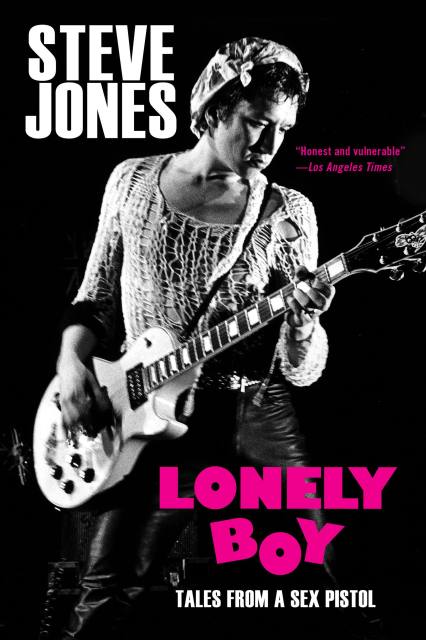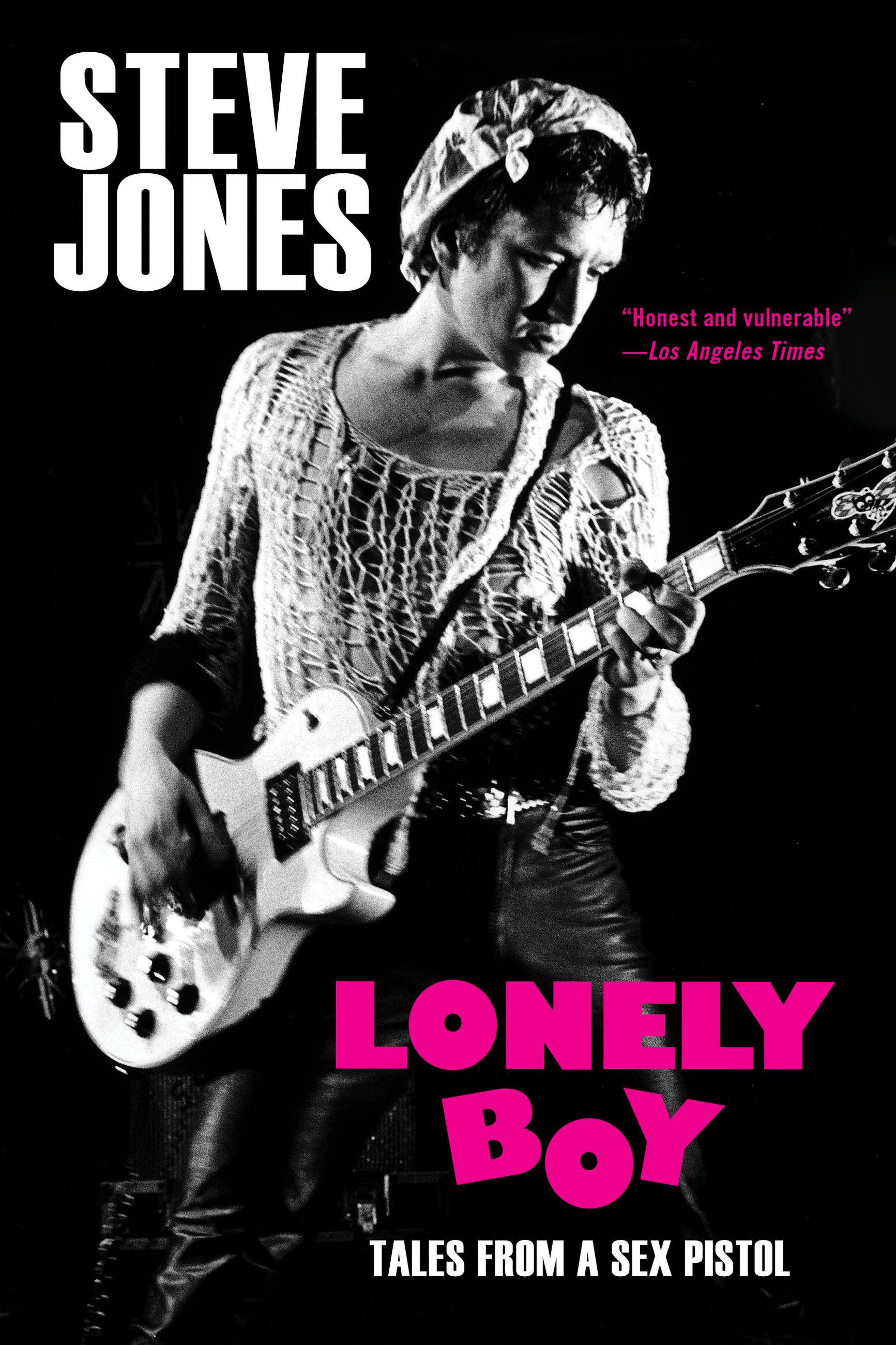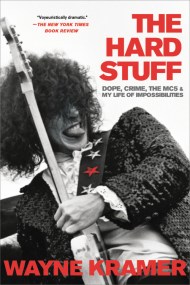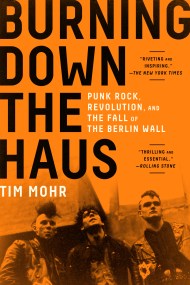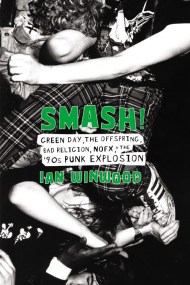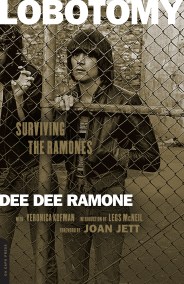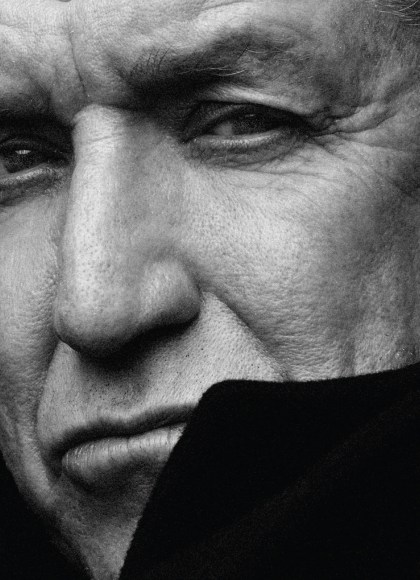Promotion
Use code MOM24 for 20% off site wide + free shipping over $45
Lonely Boy
Tales from a Sex Pistol
Contributors
By Steve Jones
Foreword by Chrissie Hynde
Formats and Prices
Price
$16.99Price
$22.49 CADFormat
Format:
- Trade Paperback $16.99 $22.49 CAD
- ebook $10.99 $13.99 CAD
- Audiobook Download (Unabridged)
This item is a preorder. Your payment method will be charged immediately, and the product is expected to ship on or around April 10, 2018. This date is subject to change due to shipping delays beyond our control.
Also available from:
Steve Jones’s modern Dickensian tale began in the street of Hammersmith and Shepherd’s Bush, West London, where as a lonely, neglected boy living off his wits and petty thievery he was given purpose by the glam art rock of David Bowie and Roxy Music. He became one of the first generation of ragamuffin punks taken under the wings of Malcolm McLaren and Vivienne Westwood.
In Lonely Boy, Steve describes the sadness of never having known his real dad, the abuse he suffered at the hands of his stepfather, and how his interest in music and fashion saved him from a potential life of crime spent in remand centers and prisons. He takes readers on his journey from the Kings Road of the early ’70s through the years of the Sex Pistols, punk rock, and the recording of “Anarchy in the UK” and Never Mind the Bollocks. He recounts his infamous confrontation on Bill Grundy’s Today program — the interview that ushered in the “Filth and the Fury” headlines that catapulted punk into the national consciousness. And he delves into the details of his self-imposed exile in New York and Los Angeles, where he battled alcohol, heroin, and sex addiction but eventually emerged to gain fresh acclaim as an actor and radio host.
Lonely Boy is the story of an unlikely guitar hero who, with the Sex Pistols, transformed twentieth-century culture and kick-started a social revolution.
Genre:
-
Radio X, 9/16/16
"From being a young oik in Hammersmith to being a sex addicted, burnt out addict in L.A., Steve Jones has led a bloody interesting life. He was the man who kick started the Sex Pistols, one of the most influential bands in British music, and ended up as one of the least likely guitar heroes in rock 'n' roll." -
"A raw, vanity-free dive into a life marred by an abused childhood, petty crime, and addictions to drink, drugs, and sex, but rescued by Jones's relentless aspiration for a better life."London Times Magazine, 11/5/16
-
"A hilarious and at times harrowing read."MOJO
-
"Jones's autobiography is anything but quaint.... His book's title speaks volumes, although these stories are told without sadness.... Through the fame years, Lonely Boy is often eye-wateringly funny.... He's 'a semi-retired sexual deviant who doesn't really act out so much any more,' which is sensible. His book's a delight."The Guardian
-
"A brutally frank autobiography."The Mirror
-
"The Sex Pistols guitarist details his life-an impoverished Sixties childhood, sexual abuse and dalliances with crime-in a way that is both moving and candid."The Telegraph, "Top 50 Books of the Year 2016"
-
"An absolute riot of revelation...[Jones] owns up to his failings with a colourful candour that is moving."The Telegraph, "Best Rock Biographies and Music Books for Christmas 2016"
-
"Never Mind the Bollocks, here's a great Sex Pistols memoir...Paints a portrait of just how 'dangerous' punk rockers and punk music were in the UK during the mid and late '70s, when it always had a harder, more political edge than U.S. punk...Jones's memoir is-like a great punk-rock song-short, hard-hitting and Pretty Decent."Houston Press
-
"With his memoir,...Jones elucidates the Dickensian childhood that underpins his band's glamorous nihilism as well as the multiple addictions-heroin, alcohol, stealing, and sex-that almost took him to an early grave."GoodReads.com
-
"A bloody good story...Jones' own voice speaks loud and clear throughout Lonely Boy, a brutally honest and level-headed memoir."Record Collector
-
"[A] funny, filthy-mouthed memoir."NME
-
"What's special about this book is its story arc, which will make the most hardened punk well up...A poignant, honest, drily humorous rump-fest from a lost soul found."MOJO
-
"A book that's sometimes raucously funny."Uncut
-
"If you live in the Los Angeles area, you've probably heard Jonesy's Jukebox, the guitarist's popular radio show, and if that's the case, you already know how refreshingly honest and funny the guy can be. That's the same kind of energy he brings to Lonely Boy...His struggles with drugs, alcohol, and sex addiction are handled with the punk icon's irresistible storytelling style that combines raw honesty and un-PC humor."NoEcho.net
-
"The book shows off Jones' wry humor and blunt assessments of himself as he parses his life...As a whole, the book provides a fresh look at the punk movement 40 years removed from the release of Never Mind the Bollocks, Here's the Sex Pistols."RollingStone.com
-
"[A] gleefully coarse autobiography...Throughout Jones' tome, he leans into the language of London's street culture...It's a tale told without censorship or self-pity...Ribald stories lurch across every page, making Lonely Boy a must-read."New York Observer
-
"Lonely Boy is the complete autobiography: unfailingly honest, presented warts and all...The band, which for so many years has lived largely in lore, is humanized here. We get to see the people behind the group, the struggles that came with becoming a symbol for punk youth, and the effects of having to live up to that image...Lonely Boy is an eminently readable autobiography. Jones holds nothing back, his scars on display for all to see...Sex Pistols fan or not, Lonely Boy is an entertaining read that leaves no stone unturned."A.V. Club
-
"Raw, open, and disarmingly honest...There's something very refreshing about Jones' honesty, and to hear the story of the birth, brief life, and grisly death of the Sex Pistols told in his voice-the working class scouse accent all but leaps from the pages-is a delight for anyone who cares about rock music at the end of the 20th century...He's witty, he's self-deprecating...Reading Lonely Boy, you can't help but feel compassion for Jones and his mates...The angst of end-of-the-century class-obsessed England in general and depressed urban London in particular, is palpable when Jones recounts his youth."Buffalo News
-
"The cocksure guitarist...kicked off the British punk movement...He's also penned a long-awaited autobiography, Lonely Boy that, along with music and mayhem, finds him discussing his multiple chemical addictions, his abusive childhood, kleptomania, and how he conquered them all."Metro New York
-
"A good read...Lonely Boy is in some ways a tragic story, and shows just how long it can take to even begin to undo the damage done by child sexual abuse...The book...shows that being a victim of child sexual abuse doesn't mean you can't go on to be a legend."Male Psychology Network
-
"The story of the Sex Pistols has been told and mis-told several times. Maybe this book is the first one that explains where it all came from, not from someone's ego, or imagination, but from West London, retold by the only real member of the band...Very moving stuff."The Portable Infinite
-
"Very personal."US Weekly
-
"Lonely Boy is a times confessional, at others profane, it is often laugh out loud funny and on more than one downright sad. There is an unexpected level of emotion and honesty...While it features everything you'd expect from a rock star bio, it avoids the pitfall of becoming a cliché."My Big Honkin Blog
-
"Details [Jones's] fast-paced life, a sweaty sex, drugs and rock and roll journey with dollops of humor, honesty and bratty tongue in cheek pathos."Rock Cellar
-
"Fantastic...Jones confesses to the kind of sordid, outlaw upbringing that would make even Keith Richards blush...Lonely Boy is unique amongst rock star memoirs: Jones is the real deal, and he isn't afraid to put it all-the good, the bad, and the truly ugly-out there for all to see."Esquire
-
"In his new memoir, Lonely Boy...Jones owns the band's history point by point, from its grittiest details to its echoing continuance in new music...Lonely Boy is exciting because it's about a Sex Pistol-singular, not plural. It isn't a timeline detailing the band's every move; it's far more captivating...Jones is an entertaining storyteller...Lonely Boy isn't contrived or dishonest-it's an open conversation about the experiences that were most important to Jones' development as a musician and person. The Sex Pistols created one of music's most memorable rebellions. This is the story of the musician who helped them make it."Elmore Magazine
-
"Absolute unflinching detail, with a nod and a wink and a pinch of Cockney slang...[A] painfully honest...must-read memoir."Noisey's VICE
-
"With characteristic candor, Jones shares the sordid details of his dysfunctional, working-class, West London upbringing...The book captures the hooligan panache and Cockney rhyming slang that have enthralled listeners of Jones' long-running KLOS (Los Angeles) radio show...For fans of punk history, and punk guitar, Lonely Boy is full of surprising little revelations...Lonely Boy is a close cousin to Dee Dee Ramone's 1997 'as told to' autobiography Lobotomy: Surviving the Ramones...Both books are essential reading for anyone interested in the birth of punk rock."Guitar World
-
"There are pungent anecdotes throughout the book...[Lonely Boy is] distinguished by Jones's sense of humor, his way with self-deprecating anecdotes and a candor that's as bracing as the opening riff of the Pistols's 'God Save the Queen.'"Washington Post
-
"The book serves as both a history of the Sex Pistols and a personal journey through the life of Steve Jones...In this candid account of his life, Steve Jones shows how one boy from West London started an entire movement that would forever change the face of his generation, making Lonely Boy a must read for all fans of rock and roll. Delve into the deep, dark world of punk rock and pick up your copy today."BackstageAxxess.com
-
"Punk music was once described as the 'sound of chaos,' and its reign on the charts was very brief...A new book by Sex Pistols guitarist Steve Jones offers tales from that time that will shock even the most jaded fan...It's a walk through musical history."WABC TV
-
"The book, like few other rock chronicles of recent vintage, actually reads the way its subject thinks...And it's all written in an unaffected patois peppered with cockney slang and coarse language...The real meat of the book, naturally, is his recounting of the short history of the Sex Pistols. It's well-trodden ground, but there's actually some fresh insight to be found through Jones' lens."Portland Mercury
-
"Filled with brutally honest accounts of [Jones's] life."Los Angeles Daily News
-
"Chronicles the rise and fall of the punk band as well as a lifetime of sex, drugs and rock 'n' roll."New York Daily News
-
"Capture[s] what it was like to be a Sex Pistol in that upheaval of mad, tabloid-fed notoriety, fame and occasional violence in mid-'70s England...Jones, despite his womanizing and penchant for theft, is sympathetic and you're happy he has made it this far in one piece, sense of humor intact and destructive impulses at bay."Arkansas Democrat-Gazette
-
"Brutally honest...Lonely Boy is not only the best of the Sex Pistols autobiography, it is among the best rock books ever. Jones has an amazing talent for storytelling and even it his memory was not the best at times, it is still an amazing story of survival in the heartless music business. And while Jones may have felt lost in the post-Punk 80's...[he] should be proud of himself for withstanding one of rock's most mythical, and trying eras."Music-News
-
"A sweaty sex, drugs and rock 'n' roll journey with dollops of humor, honesty and bratty tongue in cheek pathos."Goldmine
-
"Lonely Boy pulls no punches."LA Weekly
-
"Lonely Boy proves what [Jones's] listeners already knew-he's got more than his share of amazing stories, and an ability to tell them with wit and a survivor's sense of perspective, all of which make the book almost impossible to put down."Midnight to Six
-
"The book manages to be both comprehensive and conversational."New Noise
-
"Lonely Boy is ultimately a tale of triumph, as Jonesy confronts his addictions, comes to terms with those who wronged him, and lands his first steady job as the host of his own radio show, Jonesy's Jukebox"The Arts Fuse
-
"As someone who was there from the beginning Jones has many yarns to spin when it comes to sex, drugs and rock n' roll...A humorous, revealing and tough tell-all that gives the fan reader exactly what it wants but also would give the casual reader a unique look at what turns a young boy into a cat burglar, foul mouth yob, guitar legend, recovering addict and eventually a Hollywood celebrity."Punk Globe
-
"A true-life survivor's story...An entertaining, informative, and sometimes shocking read."Guitar Player
-
"Reveals the brief but impactful two-year history of the English punk band from the inside out...Jones is more than honest about his life and hides nothing...Any fan of the Sex Pistols should read this."Curled Up with a Good Book
-
"Jones' memoir bristles with a vivid sense of time and place...The dishy account will interest fans of early punk rock."Milwaukee Shepherd-Express
-
"A fascinating read, in part because Jones is a brilliant story-teller, but also because he's got plenty of stories to tell...As anyone who's listened to Jones long-running radio show (Jonesy's Jukebox) knows, he can be wildly entertaining. It should come as no surprise then that his memoir is just as compelling. It's been a long time coming, considering how many books have been devoted to Jones and his former bandmates over the years, but Lonely Boy was well worth the wait."Blurt
-
"The story of a true rock survivor."Goldmine
-
"[A] scabrously delightful memoir."The Daily Beast
-
"The Sex Pistols guitarists tells his story of the band that caused a paradigm shift in music."Music Connection
-
"In Lonely Boy, Jones chronicles his personal demons-including addiction, recovery, and relationships-as well as the struggles with those involved with the Sex Pistols. It's honest and vulnerable."Los Angeles Times
-
"With a new memoir, the famed punk rocker airs some dirty laundry and sets the record straight...Jones confesses to the kind of sordid, outlaw upbringing that would make even Keith Richards blush...Lonely Boy is unique amongst rock star memoirs: Jones is the real deal, and he isn't afraid to put it all-the good, the bad, and the truly ugly-out there for all to see."Israel Book Review
-
"[An] engaging memoir...[Jones is] a born storyteller... He has a way with sudden bursts of simple truths...He also sizes up the Sex Pistols better than anyone previously."Waterbury Sunday Republican-American
-
"It is often said that without The Sex Pistols, there would be no punk rock, and as the founding guitarist of The Sex Pistols, a lot of rock music's roots go back to Steve Jones. In this memoir, the host of Jonesy's Jukebox covers all facets of his life-he has done plenty as a musician, producer, actor and host since the Pistols disbanded for the first time in the late 1970s-and fortunately, for our entertainment, he writes just like he speaks."Downtown Magazine
-
"A sprawling autobiography that recalls his days growing up in London in the late '60s, to his present-day life as a DJ in California...The book [has] a certain authenticity that's sometimes lost with other ghost-written autobiographies."PopMatters
-
"Grade-A f*cking refreshing...From the outset of his new memoir Lonely Boy: Tales from a Sex Pistol, the guitarist and unlikely punk rock revolutionary tells his life story with the same maelstrom of honesty and audacity with which he has always played."Mass Appeal
-
"An acute sensitivity shines through the thuggishness...Steve Jones wrestles triumph from tragedy with wit and warmth."Austin Chronicle
- On Sale
- Apr 10, 2018
- Page Count
- 352 pages
- Publisher
- Da Capo Press
- ISBN-13
- 9780306903175
Newsletter Signup
By clicking ‘Sign Up,’ I acknowledge that I have read and agree to Hachette Book Group’s Privacy Policy and Terms of Use
